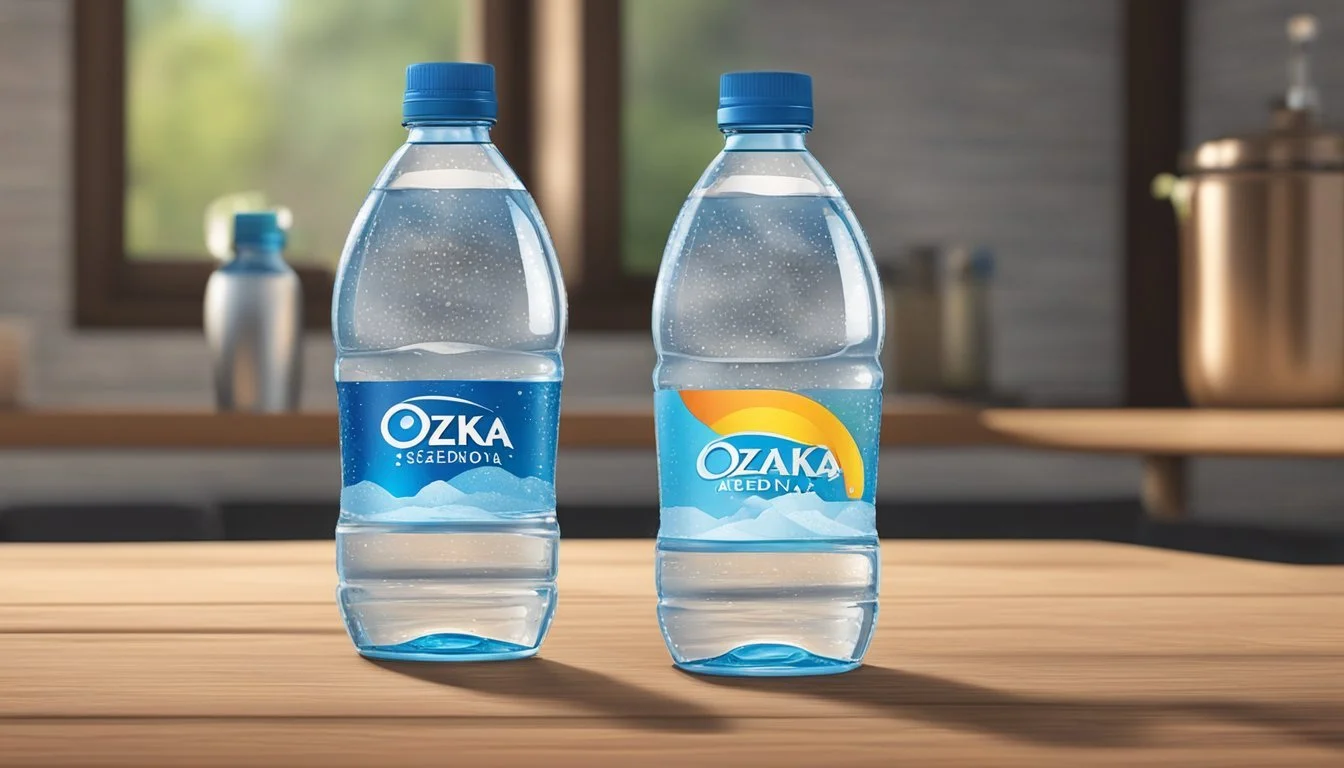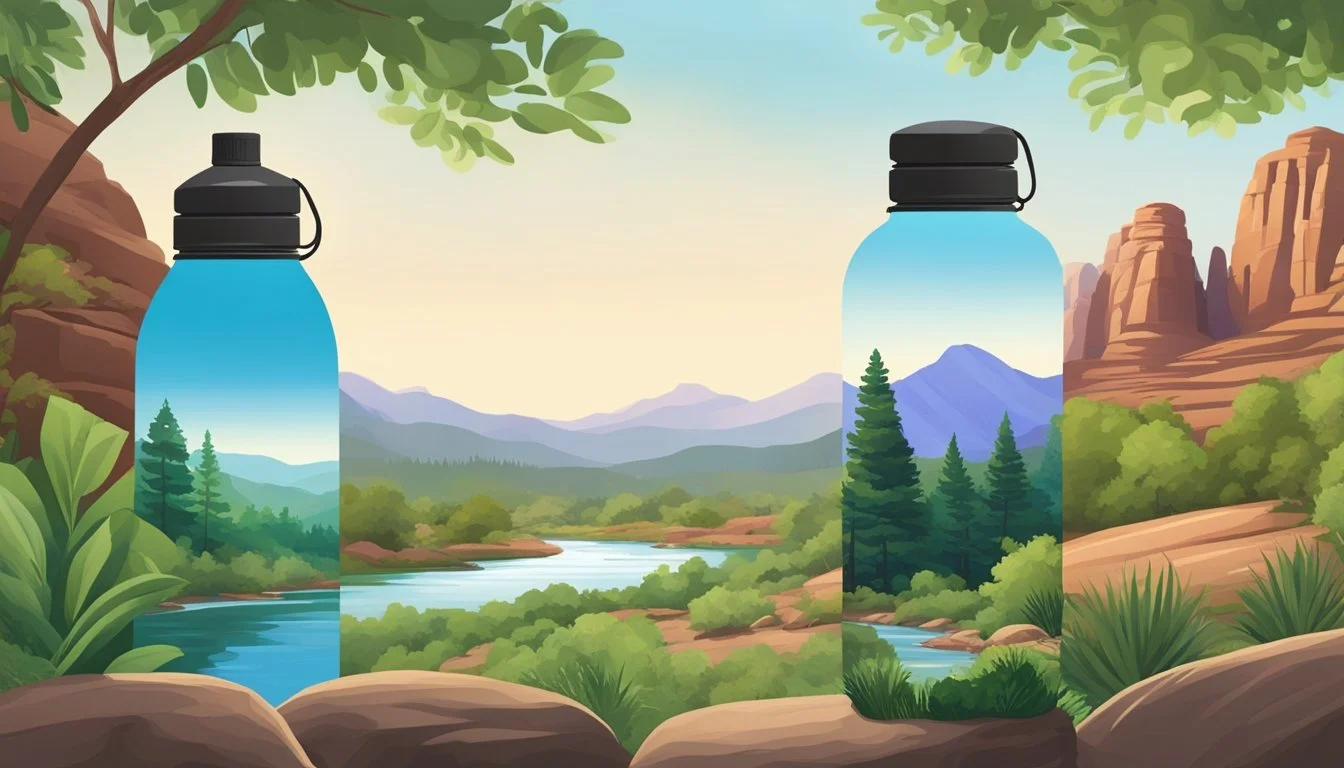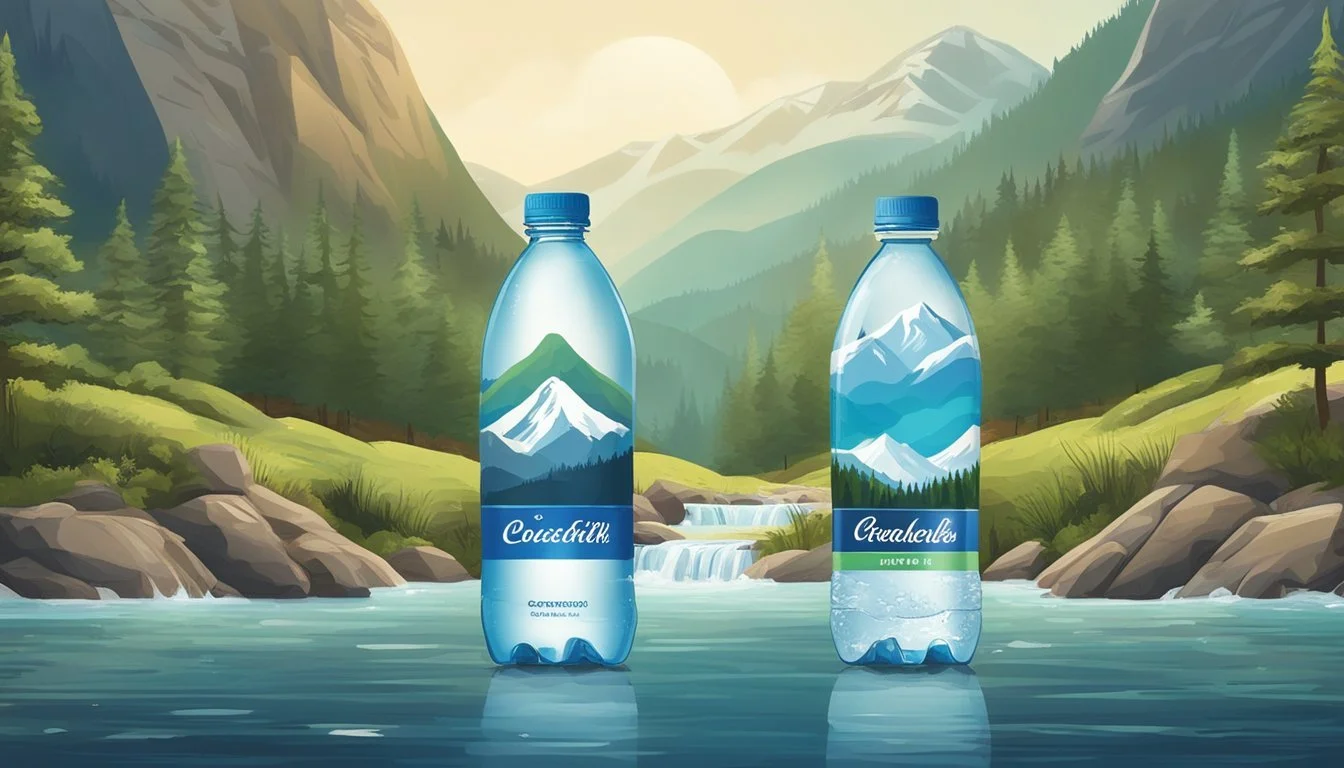Ozarka vs. Purely Sedona
Bottled Water Comparison
When choosing bottled water, consumers often consider quality, taste, and source. Ozarka and Purely Sedona are two brands that stand out, each with unique attributes and loyal followings. Ozarka, sourced from Texas springs, offers a reliable and distinctly regional flavor that many prefer for its crisp, clean taste.
On the other hand, Purely Sedona prides itself on being sourced from pristine artesian springs in Arizona, offering a pure and refreshing hydration experience. The brand positions itself as a premium choice for those seeking top-quality water. Both options come with different price points, with Ozarka generally being more affordable and widely available in larger quantities.
Choosing between Ozarka and Purely Sedona can be a matter of personal preference, budget, and availability. By examining the distinct qualities and customer feedback for these brands, readers can make an informed decision about which bottled water best suits their needs.
Ozarka and Purely Sedona Overview
This section explores the origins, water sources, and bottling processes of Ozarka and Purely Sedona bottled waters. It highlights the distinct features and practices of each brand.
Brand Origin and Water Source
Ozarka originates from Texas and is known for sourcing its water locally. Specifically, the brand draws from three natural springs in the state, ensuring a consistent and reliable supply of spring water. This local sourcing strategy helps target the regional market effectively, providing a sense of homegrown quality.
Purely Sedona, on the other hand, sources its water from the artesian springs in Sedona, Arizona. This spring water is noted for its natural alkalinity with a pH of 8, suggesting a higher mineral content. The brand has positioned itself as providing water that is both pure and naturally rich in electrolytes, appealing to health-conscious consumers.
Water Collection and Bottling Process
For Ozarka, the collection process involves tapping into the natural springs and transporting the water to their bottling facilities. Here, the water undergoes minimal treatment to keep it as natural as possible, without compromising safety standards. The bottling process is streamlined to maintain the water’s natural taste and mineral content and ensure it remains free of contaminants.
Purely Sedona emphasizes its commitment to preserving the natural quality of its water. The artesian spring water is collected directly at the source and then transported to bottling plants. The bottling process includes stringent quality controls to ensure purity and consistency. Purely Sedona's bottling practices are designed to retain the natural properties of the water, highlighting its naturally occurring minerals and electrolytes.
Water Quality and Purity
When comparing Ozarka and Purely Sedona, key aspects include the source and quality of the water, the mineral content, pH levels, and taste profile. Each brand's unique characteristics contribute to its overall appeal.
Comparative Analysis of Mineral Content
Ozarka sources its water from natural springs in Texas, ensuring it is rich in naturally occurring minerals. The mineral content varies slightly depending on the specific spring but typically includes calcium, magnesium, and sodium.
Purely Sedona is known for its purity, sourced from a deep aquifer in the Sedona region. This water is lower in mineral content due to an extensive filtration process, including reverse osmosis, which removes impurities and reduces mineral levels. This results in a cleaner taste but may lack the beneficial minerals found in Ozarka.
pH Levels and Alkalinity
The pH level of water affects its alkalinity and taste. Ozarka's natural spring water typically has a neutral to slightly alkaline pH, ranging from 7.0 to 8.0. This can be beneficial for those looking for naturally balanced water that supports hydration without being too acidic.
Purely Sedona, with its rigorous filtration process, often maintains a more neutral pH level close to 7.0. This consistency in pH ensures that the water is neither too alkaline nor too acidic, providing a balanced hydration option. The controlled pH level ensures that the water remains pure and palatable for a variety of consumers.
Taste Profile and Flavor Expectations
The taste of bottled water can vary significantly based on its source and mineral content. Ozarka's natural spring water offers a crisp, slightly mineral taste due to its rich mineral content. Those who prefer a more robust flavor may find Ozarka to be more satisfying.
Purely Sedona, on the other hand, has a clean and refreshing taste, attributed to its lower mineral content and thorough filtration process. The absence of strong mineral flavors makes it a preferred choice for those who enjoy a smooth and neutral water taste. Given its purity, it is less likely to have any off-putting aftertastes, ensuring a pleasant drinking experience.
Health and Hydration Benefits
Ozarka and Purely Sedona both aim to provide quality hydration, crucial for maintaining overall health.
Hydration: Proper hydration is essential. Both brands offer bottled water, a convenient option for maintaining fluid intake throughout the day.
Minerals and Electrolytes: Ozarka sources its water locally in Texas, ensuring natural minerals. Purely Sedona captures water from Sedona's unique aquifers, potentially offering a distinct mineral profile.
Feature Ozarka Purely Sedona Source Texas Springs Sedona Aquifers Minerals Natural from Texan Springs Unique Sedona Minerals Packaging Standard PET Bottles Eco-friendly Options
Quality: Quality control is integral for both brands. Ozarka and Purely Sedona prioritize safety and purity in their bottling processes, ensuring that their water is free from harmful contaminants.
Taste: The mineral content can affect the taste. Some people might prefer the mineral-rich taste of Purely Sedona, while others may favor Ozarka's flavor.
In choosing between Ozarka and Purely Sedona, consumers should consider their own hydration needs, mineral preferences, and taste. Both options present viable choices for maintaining good health through proper hydration.
Safety, Regulations, and Environmental Considerations
When comparing bottled water brands, it's essential to understand how each conforms to safety regulations and its environmental impact. Key aspects include regulatory compliance and the ecological consequences of packaging materials.
Compliance with FDA and EPA Standards
Both Ozarka and Purely Sedona must adhere to the regulations set by the Food and Drug Administration (FDA) and the Environmental Protection Agency (EPA).
The FDA oversees bottled water safety and mandates that it meets standards nearly identical to those for tap water. This includes limits on harmful chemicals and contaminants. Specifically, the FDA's lead limit for bottled water is stricter than the EPA's limit for tap water.
Ozarka and Purely Sedona both claim to meet these stringent requirements, ensuring their water is safe for consumption. However, there may still be concerns about other contaminants, such as Per- and Polyfluoroalkyl Substances (PFAS), which some studies have found in bottled water products.
Environmental Footprint and Packaging
Packaging is a significant factor when evaluating the environmental impact of bottled water brands. Both Ozarka and Purely Sedona use plastic bottles, which can contribute to environmental waste if not properly recycled.
Ozarka primarily uses PET bottles, which are recyclable, but the rate of recycling can vary widely. The increasing focus on sustainability has led the brand to promote more responsible recycling practices among consumers.
Purely Sedona also uses PET bottles and emphasizes eco-friendly practices. Both brands are working to reduce their environmental footprint, but the reliance on plastic still poses challenges.
The production and disposal of plastic bottles have a considerable environmental impact, contributing to pollution and resource depletion. Moving towards more sustainable packaging or increasing recycling rates can mitigate these effects.
Consumer Experience
Both Ozarka and Purely Sedona offer unique advantages when it comes to consumer experience, particularly in terms of accessibility, convenience, affordability, and market trends.
Accessibility and Convenience
Ozarka is widely available across various retail chains, particularly in Texas, where it sources its water. This regional focus ensures that consumers can frequently find it in local stores and supermarkets. Additionally, Ozarka offers a range of packaging options, from small bottles to larger bulk packages, making it a versatile choice for different needs.
Purely Sedona aims at delivering premium quality by sourcing its water from the artesian springs of Sedona. While it is less commonly found than Ozarka in everyday grocery stores, it can be easily ordered online, offering a different level of convenience for consumers who prefer a high-end product.
Affordability and Market Trends
Ozarka tends to be more affordable due to its regional distribution and larger production scale. Price-conscious consumers may find Ozarka to be a better value, especially when purchasing in bulk. The brand's pricing strategy makes it accessible to a wide audience, maintaining its presence in a competitive market.
Purely Sedona, on the other hand, is marketed as a premium product and is priced accordingly. Its focus on purity and the origin of its water justifies a higher cost, appealing to consumers who prioritize quality over price. Market trends have shown an increasing demand for premium bottled water, positioning Purely Sedona to capitalize on this shift despite its higher price point.
Comparative Analysis of Additional Features
Both Ozarka and Purely Sedona offer features that go beyond basic bottled water options, catering to various consumer preferences.
Enhanced and Flavored Options
Ozarka provides a range of flavored options, including lemon, berry, and lime. These flavors aim to make hydration more enjoyable while avoiding sugar and artificial sweeteners. Purely Sedona, focused on premium hydration, does not offer flavored variations. Instead, they emphasize the purity and crisp taste of their natural spring water, which is sourced from a single aquifer.
Specialty Waters and Unique Selling Propositions
Ozarka's specialty lies in its Texas heritage. Water is sourced from three natural springs in the Lone Star State, making it a regional favorite. In contrast, Purely Sedona prides itself on its high pH level, which they claim offers health benefits such as improved hydration and antioxidative properties. Their water undergoes minimal processing to maintain its natural qualities, making it appealing for those seeking wellness-focused options.
More About Ozarka
Mountain Valley Spring Water vs Ozarka: Which Bottled Water is Better?
Ozarka vs Kirkland Signature: Which Bottled Water is Better?
Ozarka vs Richard's Rainwater: Which Bottled Water is Better?
Ozarka vs Whole Foods Italian Still Mineral water: Which Bottled Water is Better?
More About Purely Sedona
Aqua Carpatica vs Purely Sedona: Which Bottled Water is Better?
Boxed Water vs Purely Sedona: Which Bottled Water is Better?
Castle Rock vs Purely Sedona: Which Bottled Water is Better?
Core Hydration vs Purely Sedona: Which Bottled Water is Better?
Hawaii Volcanic vs Purely Sedona: Which Bottled Water is Better?
Hawaiian Springs vs Purely Sedona: Which Bottled Water is Better?
Ice Mountain vs Purely Sedona: Which Bottled Water is Better?
Icelandic Glacial vs Purely Sedona: Which Bottled Water is Better?
Mountain Valley Spring Water vs Purely Sedona: Which Bottled Water is Better?
Nestle Pure Life vs Purely Sedona: Which Bottled Water is Better?
Poland Spring vs Purely Sedona: Which Bottled Water is Better?
Purely Sedona vs Cascade Mountain: Which Bottled Water is Better?
Purely Sedona vs Crystal Geyser: Which Bottled Water is Better?
Purely Sedona vs Crystal Lake: Which Bottled Water is Better?
Purely Sedona vs Essence pH10: Which Bottled Water is Better?
Purely Sedona vs Kirkland Signature: Which Bottled Water is Better?
Purely Sedona vs Liquid Death: Which Bottled Water is Better?
Purely Sedona vs Proud Source: Which Bottled Water is Better?
Purely Sedona vs Richard's Rainwater: Which Bottled Water is Better?
Purely Sedona vs Simple Truth: Which Bottled Water is Better?
Purely Sedona vs Talking Rain AQA: Which Bottled Water is Better?
Purely Sedona vs Weird Water: Which Bottled Water is Better?
Purely Sedona vs Whole Foods 365: Which Bottled Water is Better?
Purely Sedona vs Whole Foods Italian Still Mineral water: Which Bottled Water is Better?
San Pellegrino vs Purely Sedona: Which Bottled Water is Better?
Solan de Cabras vs Purely Sedona: Which Bottled Water is Better?
Zephyrhills vs Purely Sedona: Which Bottled Water is Better?







